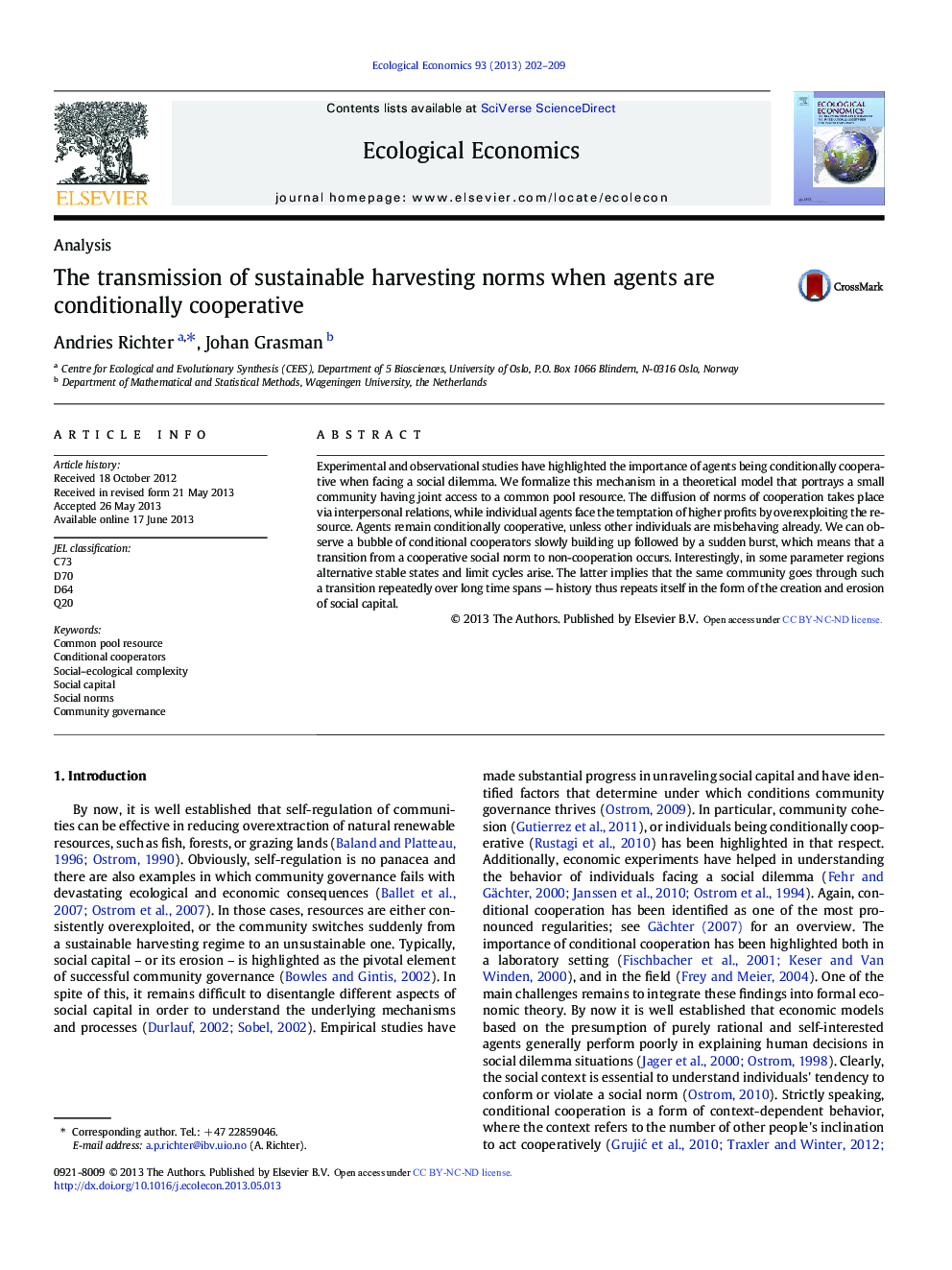| Article ID | Journal | Published Year | Pages | File Type |
|---|---|---|---|---|
| 5049951 | Ecological Economics | 2013 | 8 Pages |
â¢We model the evolution of social norms in a community having access to a common pool resource.â¢Agents are either selfish, conditionally cooperative, or intrinsically motivated to keep up the social norm.â¢The presence of conditional cooperators can result in a sudden breakdown of cooperation due to herd behavior.â¢External changes may push the system between states of limit cycles, stable equilibria, and alternative stable states.
Experimental and observational studies have highlighted the importance of agents being conditionally cooperative when facing a social dilemma. We formalize this mechanism in a theoretical model that portrays a small community having joint access to a common pool resource. The diffusion of norms of cooperation takes place via interpersonal relations, while individual agents face the temptation of higher profits by overexploiting the resource. Agents remain conditionally cooperative, unless other individuals are misbehaving already. We can observe a bubble of conditional cooperators slowly building up followed by a sudden burst, which means that a transition from a cooperative social norm to non-cooperation occurs. Interestingly, in some parameter regions alternative stable states and limit cycles arise. The latter implies that the same community goes through such a transition repeatedly over long time spans - history thus repeats itself in the form of the creation and erosion of social capital.
